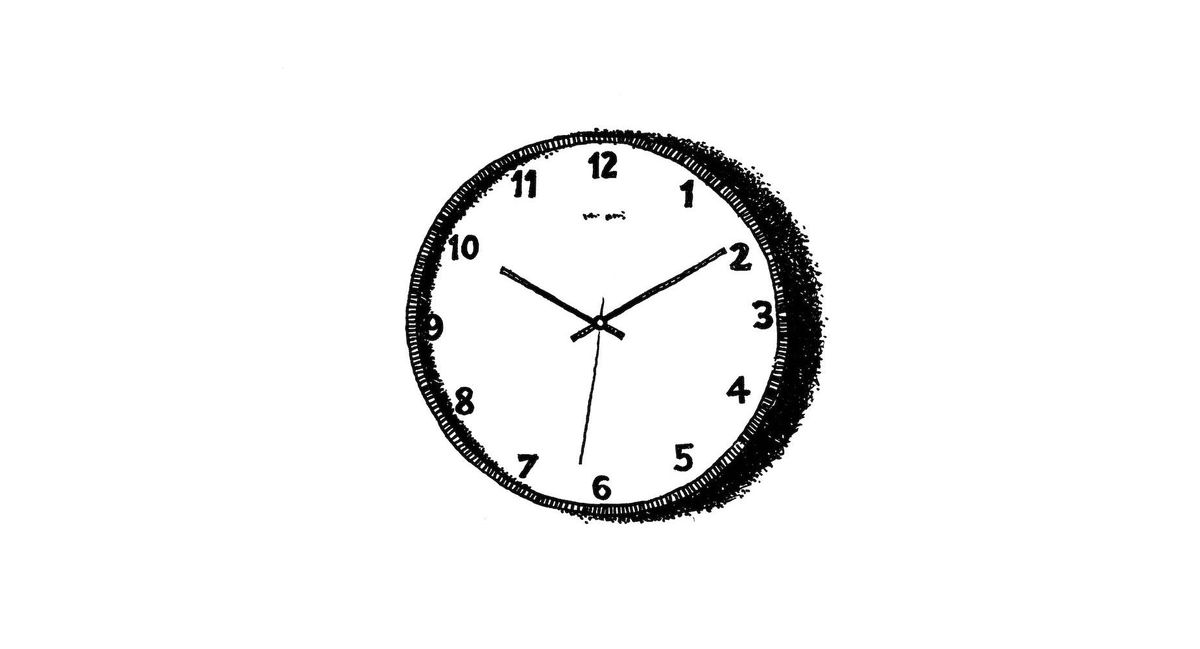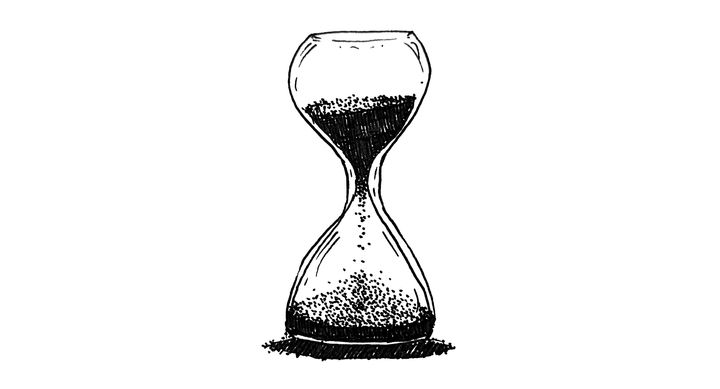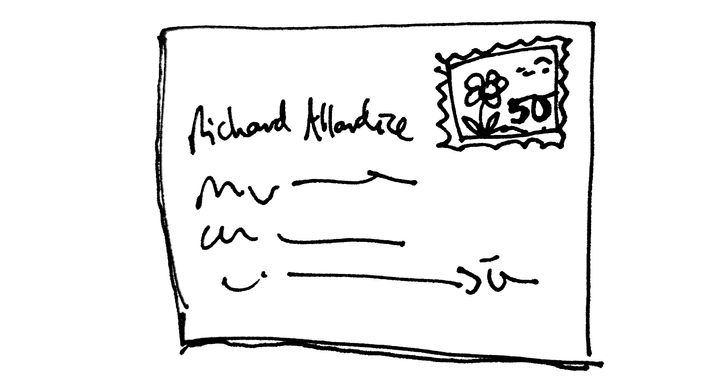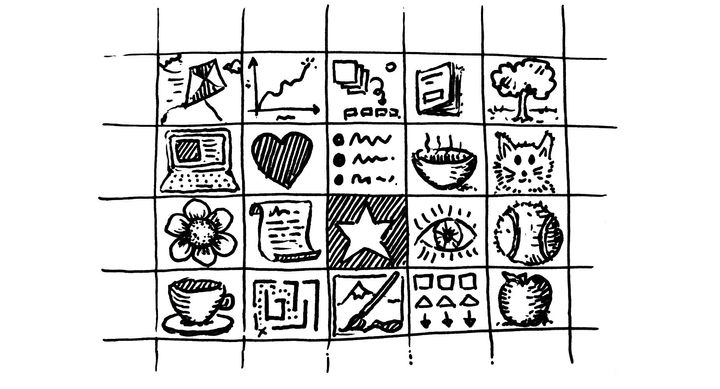Read later LOL no we won’t
Without a bona fide method we are 100% not going to read any of this stuff later

We are never going to read that thing
“Oh yeah, this looks interesting! I don’t have time to read it now. But I’ll read it later, for sure.”
I’ve underlined three issues with this 👆common line of thought, which render the sentence at best a nice sentiment but at worst a fantasy. Let me break them down:
The word “interesting”
“Interesting” is the ultimate non-committal descriptor. Witness its terrible, banal open-endedness as a one-word reply:
- What do you think of the outfit I’m wearing? “Interesting.”
- So that’s my proposal for the new project. I stayed up all night to get it done. Any thoughts? “Interesting.”
- I’m just going to come out and say this: I love you. “... Interesting.”
When the word “interesting” is central to our decision-making process for whether to read something online, it opens all doors – an attractice prospect sometimes, for it requires no mental energy. Almost anything can be pitched as “interesting”:
- Do I know anything about this topic? I might learn something new, which could be interesting.
- Sally recommended this to me, and she’s a smart cookie. Must be interesting.
- Does this hold a view counter to mine? Interesting.
- Does this hold a view similar to mine? Interesting!

If we are to whittle down the number of reading options we might reasonably squeeze into a day then we must:
- Cast out the nothing word “interesting” from our decision-making ☠️
- Find other words to qualify material worthy of reading later, like “mission critical” (eg to our work) or “mind-blowing” 🤯
- Acknowledge that trying to read any and all meh articles on the internet (which lure us in with the promise of something... interesting) is futile 🐔
The time illusion

“I don’t have time to read it now…”
But... surely later?
Unfortunately: The concept of “time later” is generally an illusion.
Let me tell you a tiny tale. At a former place of employment, we were busy. Our time was packed with meetings where we talked about the work to be done; but we frequently ran out of time to do the work… largely because we were time-locked into meetings talking about the work. Over time, we even started to run out of time to attend the meetings. Booking all the people needed for a meeting became difficult, but the video-conference software seemed to offer a solution with its “Record meeting” option. If a person didn’t have time to attend a meeting now to provide input, the meeting could be recorded so that they could watch it later.
The “Watch later” concept has issues because it ignores how time works:
- It establishes a false economy of time – that we can gain time later, whereas we’re actually building up time debt. We couldn’t pay for the time upfront, so we have to pay later.
- This system assumes that there will be time later in which to insert the watching of the recording. If the hustle and bustle of the workplace remains relatively constant (ie there are no interventions to dial down the franticness) the assumption that there will be “time later” to watch a recording will consistently prove false. The time debt will merely grow.
- People in meetings often make decisions, and if we’re not in the meeting, our input into those decisions relies on finding out what happened, or the attendees asking for your input (which is why they wanted you at the meeting in the first place). This places more urgency on (2) because if left too long, the window for input will disappear.
It doesn’t matter whether it’s a meeting, or an article we might want to read later, or a hollow promise to catch up with someone next week – the intent to defer anything until later is only as useful as our ability to fit it into a future schedule likely as busy as the current one. If we create no system to account for this (more on that in a moment), we’re just building up time debt.
Read later

The idea that we will “Read something later” is a fallacy when our zeal for reading surpasses the time we can devote to doing that reading. We have services available to us for storing material to read later, like:
- Instapaper
- Evernote clipper
But really these services just encourage us to create large (dusty) digital libraries for a single person who hardly even visits. Does a sadder library exist? 😢
Other common methods tend to overwhelm us even more – the digital equivalent of random paperwork piling up, blowing about whenever a draft comes through the place. For example, we might:
- Create a bookmark – because we all regularly tidy our bookmarks into a useful library of online resources
- Email an article link to ourself – because what our inboxes need is more stuff to read
- Leave an article in a web browser tab for later – to join the 200 other tabs open in perpetual suspension
Ultimately, will we really read it later? LOL, no.

The method
If we are to have any chance of actually “reading stuff later” we must create a window of time for the routine of reading this stuff to occur.

For such a routine to stick, the following principles need to apply:
The reading feels relevant to the the window of time we’ve set aside
A window of time to “just read anything” is vague, and invites procrastination. Consider the context in which this window occurs. For example:
- Designers who get fired up (in a good way) by reading articles about UX could make reading an article about UX the first thing they do each day.
- People who find reading satirical news articles relaxing might reward themselves for finishing work with half an hour of satire.
- Newbie runners might affirm their decision to hit the streets by reading about running after their jog. If they have the energy. Once they’ve caught their breath.
The rate of reading matches the rate at which we set material aside
Intentions to “read later” typically fail because we save far more to “read later” than we could ever read – even if all we did was read online articles all day. We let far too many items into our reading lists, and then get overwhelmed as it grows. The solution is to:
- Be very fussy about what to bother saving for later. Don’t save everything to read later. Use criteria which will disqualify all but the most worthy reads. (Remember: “Interesting” is not enough. It needs to be more like “mission critical” or “mind-blowing”.)
- Blindly delete anything that will never be read. I subscribe to a lot of newsletters, and sometimes I get behind with the reading. At the end of the week, I just delete any that didn’t get read, and I don’t look at what’s getting deleted. Didn’t get to it = it doesn’t exist.
Remember: These articles which at first glance look “interesting” have no legitimate claim to our time. They are not as worthy of nostalgia as that a raggy jacket from 1978 once worn to a costume party or a box of childhood soft toys.
Good luck!
May we forever read only what we have selected as exquisitely relevant and useful to ourselves.
Use the awesome template
Paying subscribers to Without a hitch can download:
- A crisp and nearly-serious A4 flowchart to help determine whether or not you (or someone you know) will read that article later. Spoiler: It’s unlikely!




Comments ()